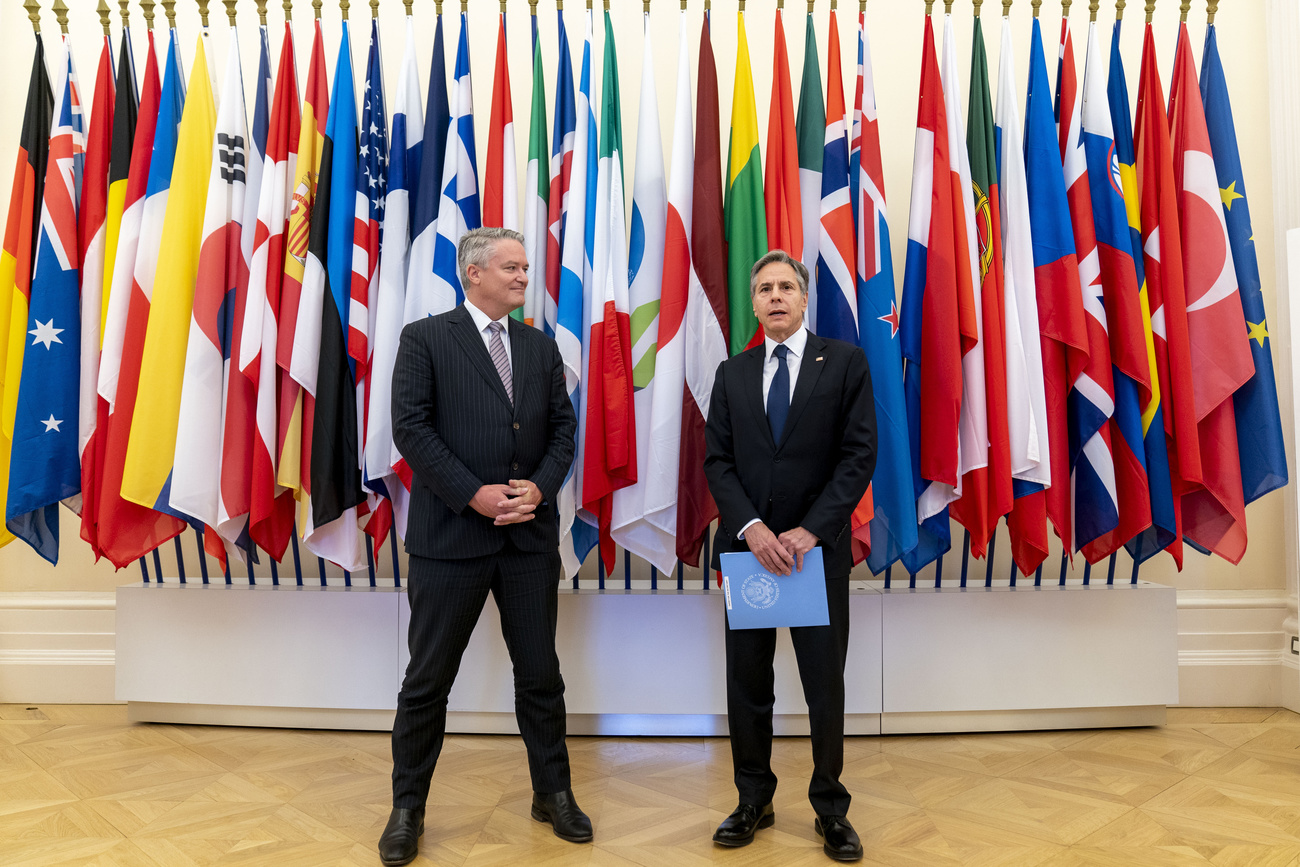
Switzerland backs landmark OECD corporate tax agreement

Despite its reservations, Switzerland said Thursday it will go along with a global corporate minimum tax. Breakthrough negotiations yielded consensus on the issue at the Paris-based Organisation for Economic Cooperation and Development (OECD).
A Thursday statement by 130 OECD countries approved a tax rate of at least 15% and taxing more of the profits of the biggest multinationals in countries where the profits are earned. Only nine nations, including Ireland, opted out.
“It’s the most important international tax deal reached in a century,” French Finance Minister Bruno Le Maire said.
Speaking in Washington, German Finance Minister Olaf Scholz declared the race to the bottom in tax competition over. “It’s a really big breakthrough, and it will change everything.”
Scholz said the next step was to ensure that finance officials from the Group of 20 major economies endorse the plan when they meet in Venice July 9-10, following a similar move by the G7 advanced economies last month.
The OECD estimates that global minimum corporate income tax of at least 15% could yield around $150 billion in additional global tax revenues annually. The goal is to settle outstanding issues and lay out a roadmap for implementation by October 2021.
Listen to small countries
In a separate statementExternal link, Switzerland’s Federal Department of Finance stressed that the interests of small innovative countries must be explicitly taken into account in the final formulation of the rules.
OECD member countries, the Swiss statement noted, must also apply the new rules in a uniform manner. “As far as the minimum tax is concerned, the solution adopted must be balanced in terms of tax rate and tax base,” said the ministry.
The companies potentially affected in Switzerland had stressed the importance of a multilateral agreement, according to the same source. Many countries had announced that they would go it alone if an OECD solution failed.
Long road ahead
There is a long road ahead before a global minimum tax becomes a reality. Each of the 130 nations, including Switzerland, must translate the OECD’s two-prong plan into legislation.
The Swiss finance ministry said it would submit proposals to the government by the the first quarter of 2022 in order to guarantee the attractiveness of the Alpine nation as a business location. Switzerland is home to a vast constellation of multinationals active in strategic sectors.
Domestic tax base erosion and profit shifting due to multinational enterprises exploiting gaps and mismatches between different countries’ tax systems cost governments an estimated $100-240 billion in lost corporate income tax, according to the OECD.
US President Joe Biden, who has championed the cause of a global minimum corporate tax, hailed Thursday’s decision. “Multinational corporations will no longer be able to pit countries against one another in a bid to push tax rates down and protect their profits at the expense of public revenue.” he said.

More
Switzerland fears impact of minimum corporate tax rate

In compliance with the JTI standards
More: SWI swissinfo.ch certified by the Journalism Trust Initiative






























You can find an overview of ongoing debates with our journalists here . Please join us!
If you want to start a conversation about a topic raised in this article or want to report factual errors, email us at english@swissinfo.ch.